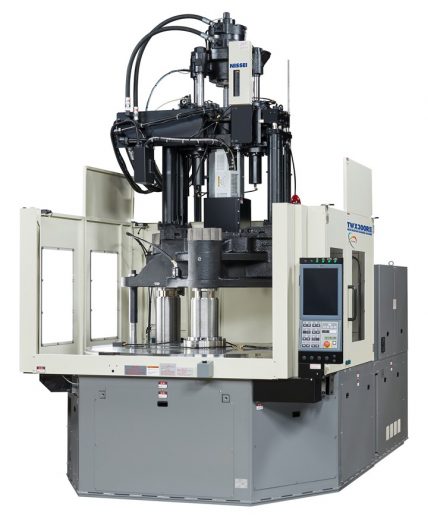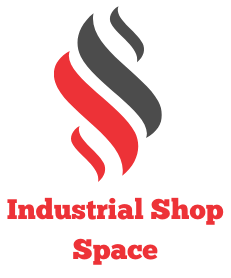What is Industrial Shop Space? Industry Experts Share the Details
When you think of industrial shop space, what comes to mind? Perhaps visions of a small workbench with a vise and some measuring tools. Or maybe you are thinking of something larger—like a garage or warehouse with whirring saws and clanging hammers. But industrial spaces are much more than these antiquated notions. In fact, industrial spaces have evolved quite a bit over the last decade, especially with the rise of e-commerce and logistics services. Industrial Shop Space is used by manufacturers to house production machinery, raw supplies, and other auxiliary functions within the same building or campus. Industrial facilities can be broken up into two general categories: manufacturing centers (MFG) and fulfillment warehouses. These types of industrial spaces often fall under the category known as “secondary market” properties – properties that are specifically designed for industrial use and not residential or commercial properties that have been repurposed for industrial use.
What are the benefits of industrial shop space?
Industrial shop space comes with a variety of benefits that you likely won’t get from other types of real estate. The first is the amount of space you’ll have to work with—and the wide range of sizes that are available for you to rent. From a tiny 2,500 square foot unit to a sprawling 80,000 square foot facility, industrial space can accommodate almost any need. You also have more flexibility when it comes to the length of your lease, and you can often negotiate shorter terms than you would for other types of commercial properties. This is because trades like manufacturing and logistics have constantly changing needs that are very difficult to plan for. Therefore, they often have trouble signing on the dotted line for a long-term lease. Industrial spaces are often located in areas with easy access to major highways, airports, and ports, providing a quick route for your products to reach the rest of the world. And you’ll also find an abundance of utilities, including gas, water, and electric, in the same building. This makes it much easier to set up shop and begin production without having to worry about the logistics of bringing in new services.
What is included in an industrial shop?
 While the exact details may vary, most industrial shop spaces will have a loading dock, large overhead doors, and ample parking for trucks and trailers. The interior of a shop may have a variety of different features, including mezzanines, loading docks, cranes, and overhead conveyor systems. And you may also have access to specialized equipment necessary for your specific industry, like metal cutting tools, 3D printers, or injection molding machines. An industrial shop will also have a variety of different electrical and HVAC systems, including the main power supply, and individual climate control systems. Depending on the building’s age and design, it may also have a sprinkler system that protects against fire or water damage. With all of these different systems, it’s definitely important to make sure you understand the maintenance and repair procedures for your specific shop. While you may have no issues whatsoever, others may be seeing the maintenance staff as often as daily.
While the exact details may vary, most industrial shop spaces will have a loading dock, large overhead doors, and ample parking for trucks and trailers. The interior of a shop may have a variety of different features, including mezzanines, loading docks, cranes, and overhead conveyor systems. And you may also have access to specialized equipment necessary for your specific industry, like metal cutting tools, 3D printers, or injection molding machines. An industrial shop will also have a variety of different electrical and HVAC systems, including the main power supply, and individual climate control systems. Depending on the building’s age and design, it may also have a sprinkler system that protects against fire or water damage. With all of these different systems, it’s definitely important to make sure you understand the maintenance and repair procedures for your specific shop. While you may have no issues whatsoever, others may be seeing the maintenance staff as often as daily.
What is fulfillment warehouse space?
Fulfillment warehouses are used to store and ship out product inventory that is being sold online. They are designed with a high level of mechanization and automation, using conveyor systems, robots, and computerized barcode scanners to find and store products. These warehouses often have very high ceilings, allowing them to store pallet-sized containers on automated shelving units that move products around the warehouse. Fulfillment warehouses also include dock doors large enough to accommodate 18-wheeler trucks, allowing the warehouse to directly receive shipments from shipping companies. They also have drive-in doors that allow forklifts and other types of vehicles to move around the warehouse floor. Fulfillment warehouses are often able to operate 24/7, which is ideal for e-commerce companies that need their product inventory to be available to customers at all times.
Fulfillment warehouse storage and logistics
Fulfillment warehouses are designed to store goods for long periods of time, meaning there must be a constant level of humidity and temperature inside the building. Industrial facilities often use a water source humidity control system (WSCC) to control the humidity inside the building. These WSCC systems pump water into the air conditioning system and then out of the building via an exhaust system. This system is typically run during times of the day when the building is not being used. The humidity level in the building is monitored and controlled by the system’s humidifier and dehumidifier. With technologies like RFID and computerized inventory management, warehouses can now track their inventory more closely than ever before. These modern systems often allow warehouses to track thousands of inventory items in real time, including their location, quantity, and maintenance needs. This not only ensures that goods get to their destination on time, but also helps reduce the risk of theft and accidents.
Manufacturing center space: MFG and MMG
Shared space, or manufacturing floor-gas (MFG) space, is suitable for companies that produce large batches of goods over a short period of time. This type of industrial shop space is often used for things like product development, manufacturing, and finishing. MFG are often large open spaces partitioned by railings or barriers to create workstations. They are often used in conjunction with equipment that has been added to the industrial shop space, like conveyor systems, robotic arms, or 3D printing machines. Manufacturing lots, or MFG, are spaces that are designed for companies who produce smaller batches of goods over a longer period of time. Typically, these are smaller spaces with fewer amenities, making them ideal for smaller companies that don’t need the extra space of an MFG.
Manufacturing center automation and robotics
Some manufacturing centers are now using automation and robotics to increase their operational efficiency. Robots have become more affordable and easier to program and operate, making them a viable option for small and large companies alike. Industrial automation is a more complex solution that can be useful for any company that has a large amount of inventory or works with high-value goods. It involves installing sensors throughout the industrial shop and software that analyzes data and makes recommendations for improvement.
Bottom line
Industrial shop spaces are a great option for companies in any industry. Not only do they provide ample space and easy access to utilities, but they also come with specialized equipment and automation that can help you become more efficient. If you are struggling to find space in a residential or commercial area, or have trouble finding a landlord that will lease to your business, industrial shop space may be the solution to your problems.
